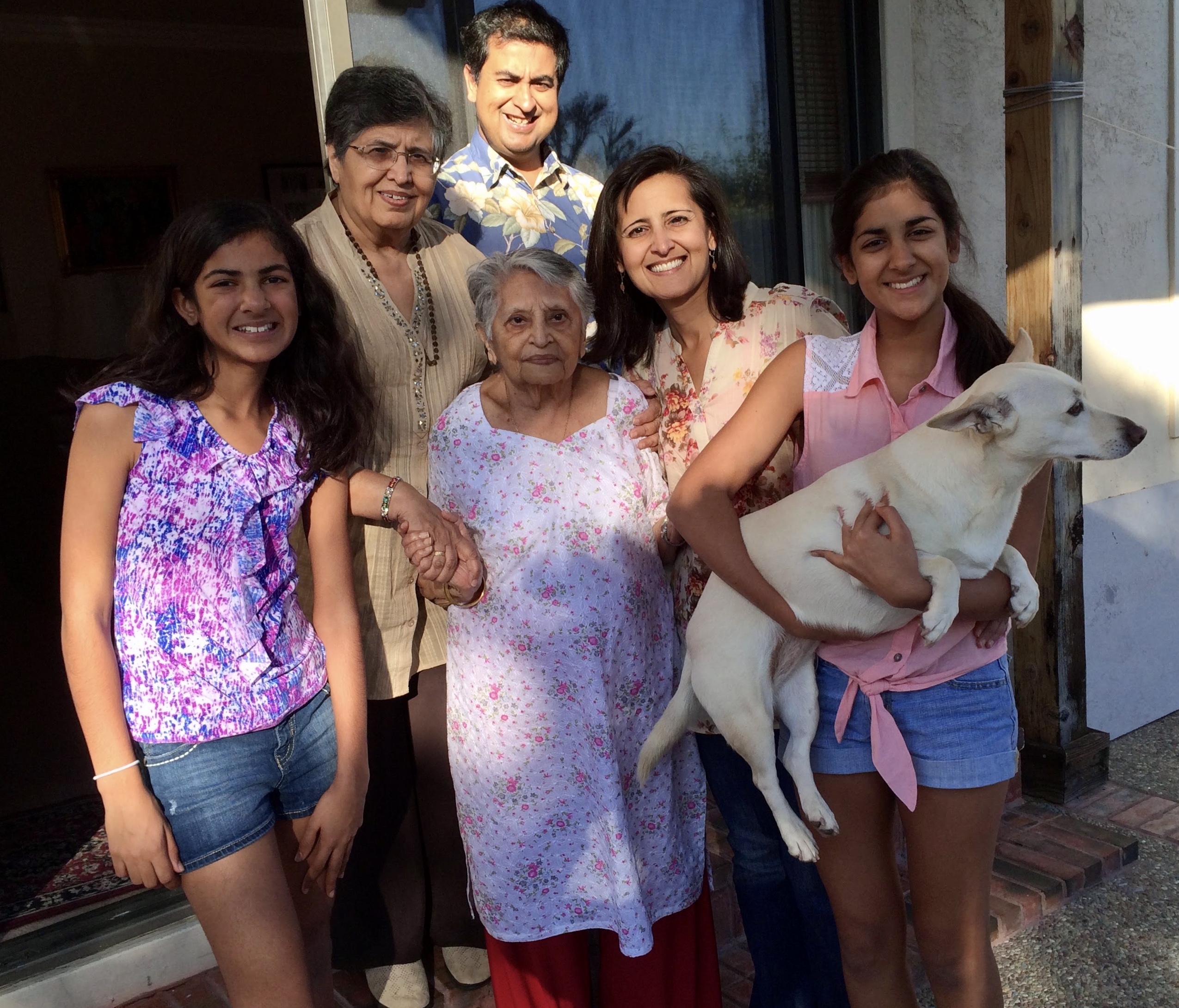Our roles were suddenly reversed: An Asian Indian immigrant daughter’s story about caring for her mother

My name is Jaya and I was born in India, moved to USA in 1976, first to Cleveland, Ohio and then from there to San Francisco-Fremont, California and have been living here since then. About 20 years back my…25 years back my father passed away, so I went and brought my mother with me to come and live with me because I have no siblings, and she came and lived here with me.
This lady is a very strong...I mean was a very strong lady and a lady with her own convictions. And in our culture, not many people went outside the home to work, and she was one of them who did go out and work and made a name for herself in her job.
When she came in and lived with me, initially, she was still the autocrat and wanting to have things her way. And then realized that she is not living her life, but she is now living with us, not we with them…and so she kind of mellowed down.
It was much later that I heard about dementia and I saw that happening in her, in the sense, she would forget stuff very, very quickly and then I had to tell her, “No, but Mom we did that already,” and then she said, “Oh yes, I forgot.” And oh, she wouldn’t say I did but she’d say, “I didn't forget, but I was trying to see if you remember,” and you know these little games were being played between her and me. But I found that she was losing her memory, she was losing stuff. In fact, one day she even turned around and asked me who that man was, which is my husband and she'd known him all her life, but she asked about that…and so these are the things that I noticed. It was very sad seeing this because you remember the person who she was, and then you see her in this stage more like -childlike who have to be told all the time what to do and what not.
That way, I found...I found myself in a position where she, the mother, had become my child and I had become her mother. I would tell her, “Now go and do this...or go and sit there” and she would go and do that, that's how the roles were reversed.
The last two years of her life were really very sad to me because she…she would make me or say things that were all out of context and I would be keep on telling her “No, you didn't do it this way” then she got sick. I had to take her to the hospital and she was there and I would carry her meals with me…go there twice a day. I was working but I was taking these things. Then, her brother came and visited here. She was very fond of her brother, extremely fond of her brother they were like “two peas in a pod,” but when he came, she kind of ignored him and wanted to not have him around and I said, “but you know, he's your brother who you love so much.” She said, “Tell him to go back home, I don't want him here.” And then her nieces…she has three nieces and a nephew, they came to visit her and we talked and her…her lungs were giving way. She had very bad lungs and there was a patch in her lungs. The doctor said she had COPD and then she was because of sleeping on her back all the time...she would lie down all the time…she got these bed sores and we had to have the VAC to get those taken care of and she…she was happy to see the nieces and nephews. But she had to carry an oxygen cylinder with her all the time. I got the oxygen cylinder here and she would remove it from here. She would take that thing off her nose and say “no…no…no…I want to breathe on my own.” Then I‘d say, “but you cannot breathe on your own, you need oxygen. Your oxygen level has gone down.” And she she’d say, “No, I want…” it was more like a child and you're literally…literally...literally bribe the child to do stuff ...okay if you do this, I'll give you this…if you do that and I’ll give you that and she’d say, “Okay, okay…I’ll do it…if you give me that, I'll do it…if you come and lie down with me.” and it was...it was very difficult, especially when you remember what kind of a person she was...and what has she now become…it was…it was killing me and then her saying, “don't send me to a nursing home...don't...promise me you won't send me to a nursing home.” And I’d say, “no, no…I'm not sending you to a nursing home.” Things like that, and I really think that research should be done and it would be helpful for people to talk about it and to share your feelings…and I used to share with my friends and tell them…this is what I feel and this is how I think she's…she's got dementia, I think she has this problem but…you know that’s how it is. I really want people to do research on it and I'm hoping I won't be like that when I grow up but…who knows...maybe…but that's about it.
